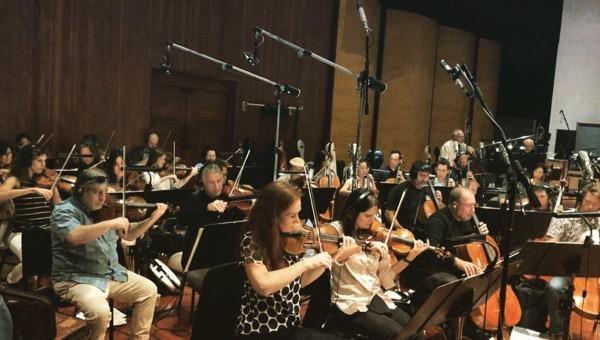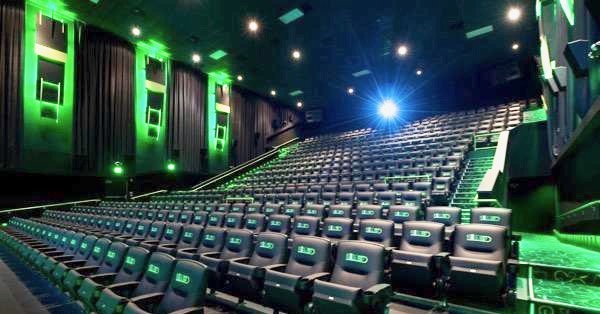Thanks for sharing, This is a great article that helps me when enjoying music. It's great to have klingelton to yourself.
Music, Movies, and the Classics

Classical music as a category is a catch-all term for compositions originally played in front of a live audience. Most such music is a century or more old, but adventurous composers are still writing it today. It's similar to modern "popular" music (rock, country, metal, and more) mainly in the fact that it's now experienced more from recordings than viewed and heard live.
But while classical music is tricky to define, anyone even remotely familiar with today's pop music can instantly distinguish classical music from the music produced by past and present iconic pop performers such as Elvis Presley, Dolly Parton, or the Beatles. They're all classic in their own way, of course, but for my purposes here classical music is defined as performed by orchestras, choirs, or smaller groups with or without singing and (usually) without external amplification. It encompasses hundreds of "classical" composers, some well-known, others not so much. There are also outliers that many people would consider classical but others would not — the comic operas of Gilbert & Sullivan, for example.
The late J. Gordon Holt, founder of our sister publication, Stereophile didn't, as far as I know, deprecate popular music, but was a strong proponent of well-recorded classical music, viewing it as the only genre fully suited for judging audio gear. That's no longer a popular opinion, but in one respect Gordon had a point.
Virtually all popular music today is recorded in a small studio with multiple microphones and often heavily equalized and dynamically compressed to sound as loud as possible. What it should actually sound like on a quality audio system is anyone's guess, but it probably doesn't come close to resembling what the original performance sounded like in the studio. It might still sound impressive, but is it "high fidelity?" Probably not, which raises a question:
Does the term "high fidelity" still have any true meaning?
Yes, but only on the playback side, where it likely means an accurate reproduction by the playback system of what's on the recording, which will differ from what was heard in the studio in any number of ways. The portion of the recording chain between the sound heard in the studio and what your audio system receives from the recording of it is a gray area and will likely always remain so. The playback system itself is full of pitfalls, even if the audio system is theoretically perfect (and it will never be given, in particular, the contributions of both loudspeakers and rooms).
But I digress. The best symphonic recordings employ a limited number of microphones discretely positioned for the best acoustic result. The goal is to have as little manipulation of the mic feeds at the recording console as possible. But most such symphonic classical recordings today use far more microphones than did the best recordings of the past, and not necessarily for multichannel playback. More microphones allow for creative mixdowns into 2 (or more) channels. But while a symphonic recording can sound spectacular on a good system, it will always be limited by the fact that you can't properly reproduce the impact of 100 musicians playing in a domestic space — not that you'd want to!

My interest in audio (and later video as well) began (as it likely did with many of you) at the movie theater. My obsession with a film's sound, often in the impact of its music score, likely triggered an early interest in music in general. I have a sizeable collection of film scores on CD, but few of them sound anywhere near as good as when they accompany the film as intended (with the exception of where music in the film is toned down to make room for the dialogue).
Why might that be?
One possible reason is that when the music is mixed into the movie, the filmmakers might be present during the process. But if that mix is later transferred to a 2-channel version for the CD release that oversight might be less stringent. The final days or weeks of preparation for a movie's launch can be hectic. Among other things, the theatrical opening date is set well in advance, and moving it can be financially crippling. Passionate movie fans are also likely to look for the soundtrack CD of a favorite film immediately after seeing it (or at least might have done so in CD's more halcyon days!). And since most are not as fussy about sound quality as audiophiles, the CD might still sell reasonably well. The financial downside of a late disc release may well be more critical than the disappointment of a few hypercritical audiophile buyers.
But for me the often mediocre quality of movie soundtracks on CD has greatly reduced the possibility that I'll buy such CDs. But if I liked a film in the theater, I'll always consider adding the full movie on either 2K or 4K Blu-ray into my collection. And it often sounds better on my home system than it did in the theater. Unlike in the movie theater, I can control the sound level. No one who has viewed a movie on my system has complained about it being too loud, though it's often played at a level that would risk the ire of my neighbors if I lived in an apartment. (Sadly, most moviegoers are likely to judge a theater's sound on how loud it is, not how good it is!). The surround sound is also often less impressive in a commercial theater (though this will vary with the quality of your local multiplex). Third, I can control the balance of the mix to a degree, adjusting the sound levels of each channel to ensure that the dialogue, music, and effects are ideally set. The maintenance of your local commercial theater's setup is often sadly neglected. I avoided my local IMAX for years (during Covid, of course, and also until Oppenheimer came along) because the sound in that theater, particularly the music, appeared to come mostly from the surrounds!
- Log in or register to post comments


It's common for film scores on CD to not sound as good as when they accompany the film due to differences in the mixing process. Filmmakers' oversight during the mixing into the movie may be less stringent for the 2-channel version on the Drive Mad 2 CD release.

The platform boasts a diverse range of music tutors, covering various instruments and genres, making it a one-stop-shop for music enthusiasts at all skill levels. Whether you're an aspiring pianist, guitarist, or vocalist, the abundance of Music Tutors ensures that you can find the perfect match for your musical journey. The website seems to foster a rich learning environment, offering a plethora of teaching styles and approaches. For anyone looking to expand their musical horizons, this site appears to be a valuable resource, connecting learners with experienced and passionate music tutors.

I agree that unfortunately many film soundtracks don’t sound as good as they did in the movie. That’s why I prefer to watch the movie in a film theatre set up. Thank you Sound & Vision for your installation at our office. From the team at Gutter Cleaning Near Me.

New version and upgrade to Spotify Premium APK to listen to music for free without ads.

When the 3 genres Music, Movies and the Classics create a new and extremely good feeling when enjoying. Spotify Premium APK

You can style and apply effects with the help of artificial intelligence in AI Mirror APK . You can turn your photo into art by twisting your facial structure, adding text, emojis, icons, and much more. Enjoy premium features, whether you are a beginner or a professional.

Music, movies and classic works are always an endless source of inspiration in life. They bring emotional experiences and unforgettable memories. Like playing slope game , a simple but attractive game, they challenge our reflexes and concentration, bringing joy and satisfaction after stressful moments.

"Each day brings a new wordle challenge, a reminder that learning and growth are continuous."

This article offers a delightful dive into the intersection of music and film, exploring how classics shape our cultural landscape. If you’re eager to deepen your appreciation or just want to sound smart at your next dinner party, google is your trusty sidekick—quickly pulling up facts, history, or even that obscure soundtrack you can’t remember. Cheers to the fusion of beats and cinema!

Blog inspiration can stem from various sources, like Ken C. Pohlmann's insights on cataloging classical music. While classical and popular music differ, both genres have evolved into recordings rather than live performances. This shift raises questions about "high fidelity" in audio. Interestingly, much like in Bitlife , where you navigate choices and outcomes, the journey of sound recording involves decisions that impact how music is experienced, blending artistry with technology.

Thomas J. Norton highlights the challenges of cataloging classical music for streaming in his article. While classical music is often defined by its orchestral roots, it remains distinct from popular genres. Interestingly, just like mastering the levels in Geometry Dash requires precision and skill, appreciating the nuances of classical compositions demands a keen ear. Both forms of artistry showcase creativity, whether in music or gaming, enriching our cultural landscape.

Music, movies, and the classics all have a way of taking us on emotional journeys. Whether it's the dramatic scores of classic films or the timeless melodies of iconic songs, rhythm plays a huge part in shaping the experience. If you're looking to match the tempo of a scene or a song, using a bpm tap tempo tool can help you identify the perfect beat, ensuring the music enhances the mood and flow of the moment.































































